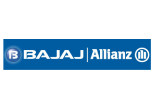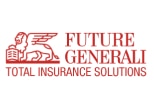Are Money-Back Policies a Good Idea for You
Table of Contents
A moneyback insurance policy obligates the insurance company to pay maturity benefits as a result of survival benefits at regular intervals over the policy's life. In addition, if the policyholder dies during the plan period, the beneficiary will get the entire covered amount, independent of any previous survivor Benefit payments. As a result, a money back policy is similar to an endowment policy, but with the added benefit of periodic liquidity. It is a service that mixes insurance and investments.

What Are the Advantages of Money-Back Guarantees?
There are several benefits to purchasing a money-back insurance policy. As a result, they are the most common kind of insurance acquired by investors. The following are some of the advantages of a money-back guarantee:
1. Offers Both Insurance And Investment Advantages.
A money back insurance policy provides both insurance and investment benefits. In addition to providing life insurance, they invest a large amount of money in the market. As a result, a money return plan may be used to invest in your long-term goals while also protecting your family's future. It's crucial to note that investing in money back insurance is less risky because the funds are put in securities and cash bonds, which are less susceptible to market fluctuations.As a consequence, purchasing a Money back coverage is risk-free.
2. Provides a Premium Benefits Waiver
If the policyholder dies within the policy's term, the extra premiums are waived. The plan, however, remains in effect, and payments are paid on a regular or as-needed basis. It is a necessary component of a money-back guarantee plan.
3. Payments Are Made On A Consistent Basis.
Under a money back insurance plan, a policyholder is entitled to a share of the maturity reward on a recurrent basis. The policyholder has the option of deciding how much to pay and when to pay it. They can also put their money in monthly income plans to ensure a consistent stream of income, or they can choose prizes to help them through different periods of life.
4. Benefits of Taxation
Policyholders who pay their insurance premiums on a regular basis are eligible for tax breaks. The benefits are governed by Section 80C of the Income Tax Act. The survivor benefit, maturity benefit, and monthly investment plan incentive are all tax-free benefits.
5. Financial Security of the Family
The major reason for purchasing a Money back plan is to obtain life insurance. If you die while the plan is still in existence, your nominee will be paid the whole amount promised. Even if you are not physically present, you may be able to give financial stability to your loved ones. This money can be used for day-to-day expenses, debt payments, and so on.
6. Risk-Free Returns
If you are apprehensive about taking risks, a money-back plan is the best option because it is risk-free. If the insured survives, the insurance company offers a payment. If the policyholder dies, the nominee receives the guaranteed sum as well as any accumulated incentives.
7. Extra Riders
If the life assured want to cover elements of their life that are not currently covered by the policy, they can choose from a variety of add-ons, often known as supplemental riders. These riders provide perks and services that allow you to simply cover many elements of your life.
Conclusion
Finally, there are a number of advantages to investing in money-back guarantees. Regular stock buyers, whether on their own or through mutual funds, can utilise this strategy to protect at least a percentage of their holdings. If you find yourself in a bind, Money Back Plans might come in handy. Because of the lower risk and guaranteed payments, you may be confident that your family will be cared for whether you are there or not. Keep the above suggestions in mind before purchasing a Money Back plan; this will assist you to make an educated decision. Buying insurance is a terrific way to protect yourself against significant financial obligations that are unavoidable in life.
Also read- What Is A General Provident Fund And How Does It Work



























































